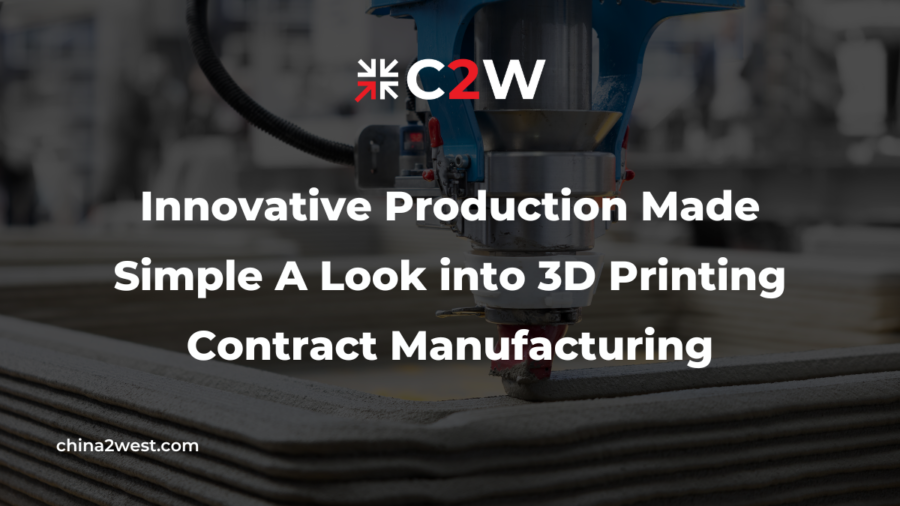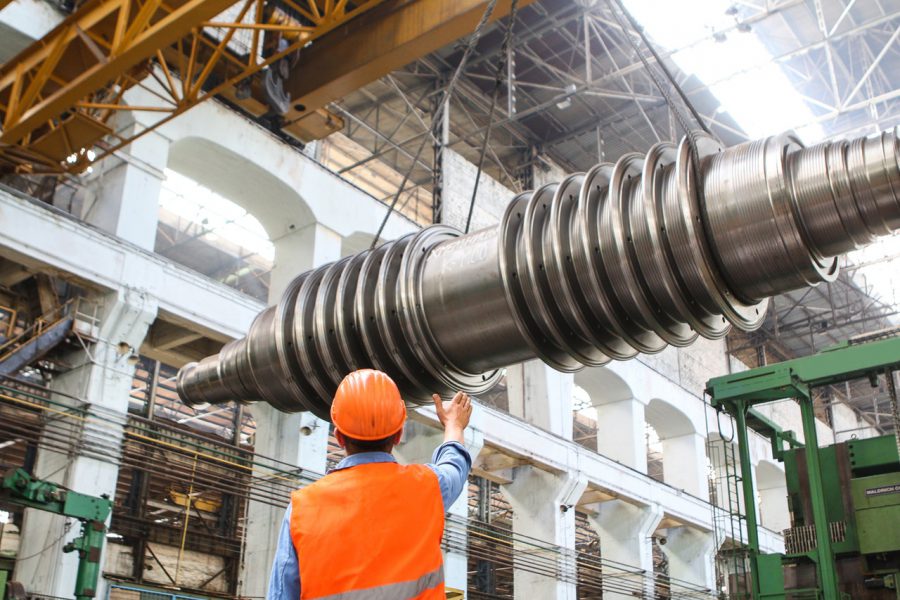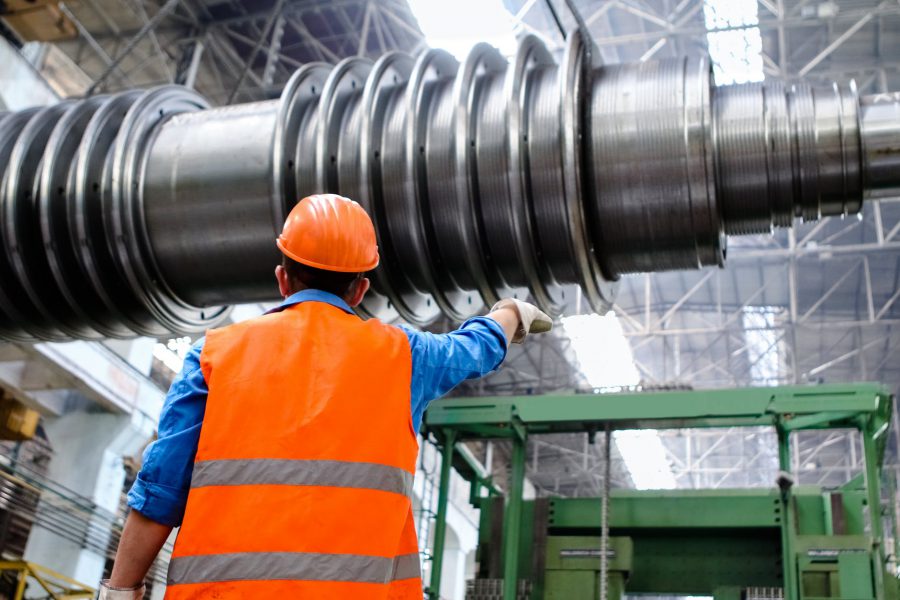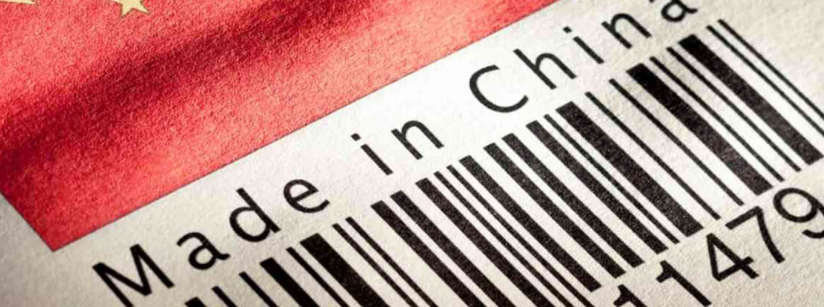The world of manufacturing has been forever changed by the emergence of 3D printing. This revolutionary technology has opened up endless possibilities for creating products and prototypes with incredible speed and precision. One of the most exciting developments within this industry is the rise of 3D printing contract manufacturing. This innovative approach to production has simplified the process for companies looking to bring their ideas to life and is quickly becoming a game-changer in the manufacturing landscape. In this blog post, we’ll dive into the world of 3D printing contract manufacturing and explore how it is reshaping the way products are made.
What is 3D Printing Contract Manufacturing?
3D printing contract manufacturing involves outsourcing the production of components or finished products to a specialist third-party manufacturer equipped with advanced 3D printing technologies. They take the reins from there, leveraging state-of-the-art 3D printing technology to transform those blueprints into tangible products. Once printed, the parts are expertly assembled, and the finished product is delivered right to your doorstep.
This type of manufacturing is a cutting-edge practice that takes the power of 3D printing and blends it with the effectiveness of outsourced manufacturing. This model, in essence, streamlines the path from design to delivery, slashing costs, and trimming down production timelines. With this innovative approach, businesses can turn their ideas into reality more swiftly and cost-effectively than ever before.
The Benefits of 3D Printing Contract Manufacturing
When combined with 3D printing technology, contract manufacturing can offer several benefits. Here are some advantages of incorporating 3D printing into contract manufacturing:
Rapid Prototyping
3D printing allows for quick and cost-effective prototyping. This is particularly beneficial in the early stages of product development, enabling faster iterations and design improvements.
Reduced Tooling Costs
Traditional manufacturing methods often require expensive molds and tooling. With 3D printing, there is less reliance on tooling, leading to lower upfront costs and increased flexibility in small-batch production.
Customization and Personalization
3D printing enables the production of highly customized and personalized products without incurring significant additional costs. This is advantageous in industries where tailored solutions are in demand, such as medical devices or consumer goods.
Complex Geometries
Traditional manufacturing methods may struggle with complex and intricate designs. 3D printing excels at creating complex geometries that would be challenging or impossible to achieve with traditional methods.
On-Demand Production
3D printing supports on-demand manufacturing, meaning products can be produced as needed, reducing the need for large inventories and associated storage costs.
Low Volume Production
3D printing is well-suited for low-volume production runs. This is beneficial for businesses looking to produce small quantities of a product without the financial burden of large-scale manufacturing processes.
Reduced Time-to-Market
With the ability to rapidly prototype, iterate, and manufacture, products can reach the market more quickly. This can be a critical advantage in industries with short product lifecycles.
So whether you’re a small startup wanting to turn a creative idea into a physical product or a large-scale corporation looking to optimize your production process, 3D printing contract manufacturing can provide a range of advantages that are hard to overlook. From geometric freedom to rapid prototyping, from environmental sustainability to cost savings, this innovative production method is proving to be a game-changer in the manufacturing world.
Challenges and Considerations
While 3D printing contract manufacturing offers numerous advantages, it’s important to acknowledge some challenges associated with the technology.
Limited Material Options
Restricted Material Variety: The range of materials available for 3D printing may be limited compared to traditional manufacturing methods. This limitation can impact the suitability of 3D printing for certain applications, especially those requiring specific material properties.
Quality Control Challenges
Consistency and Quality Assurance: Ensuring consistent quality across a large volume of 3D printed parts can be challenging. Variations in print quality and material properties may arise, affecting the overall reliability of the produced components.
Intellectual Property Concerns
Data Security and IP Protection: Sharing digital design files with a contract manufacturer raises concerns about intellectual property (IP) protection. Companies must establish clear agreements and safeguards to protect their proprietary information and prevent unauthorized use or reproduction of designs.
Scale-Up Challenges
Scalability Issues: While 3D printing is excellent for prototyping and small-scale production, scaling up to meet larger production demands may be challenging. The speed of 3D printing, especially with certain technologies, may not match the efficiency of traditional manufacturing methods for mass production.
Post-Processing Requirements
Post-Processing Demands: Many 3D printed parts require post-processing to achieve the desired surface finish, strength, or other characteristics. Contract manufacturers may need additional time and resources for these post-processing steps, impacting overall production timelines.
Choosing the Right 3D Printing Contract Manufacturer
Embarking on the journey of 3D printing contract manufacturing is a crucial decision and choosing the right partner to navigate this path with you is vital. The right 3D printing contract manufacturer should feel like an extension of your team, helping you turn your innovative ideas into tangible realities. Here are a few key considerations to bear in mind as you make this important decision.
Expertise and Experience
Assess the contract manufacturer’s expertise in 3D printing technologies and their experience with projects similar to yours. A provider with a proven track record in your industry or with comparable applications is more likely to understand and meet your specific requirements.
Technological Capabilities
Evaluate the range of 3D printing technologies the manufacturer employs. Different technologies (e.g., Fused Deposition Modeling, Stereolithography, Selective Laser Sintering) offer varying strengths and weaknesses. Ensure the chosen technology aligns with your project’s needs in terms of material compatibility, precision, and speed.
Quality Control Measures
Inquire about the quality control processes in place. A reliable contract manufacturer should have robust quality assurance procedures to ensure consistency across the produced parts. Ask for certifications, such as ISO standards, to validate their commitment to quality.
Cost Considerations
While cost shouldn’t be the sole deciding factor, it’s important to consider pricing and ensure it aligns with your budget. Request detailed quotes, including any potential additional costs such as post-processing, material changes, or design modifications.
Geographical Considerations
Depending on your project’s requirements, consider the geographical location of the contract manufacturer. Proximity may be essential for quick shipping, easy communication, or compliance with specific regional regulations.
If you are considering outsourcing your 3D printing project to a contract manufacturer, China is an ideal location. The country has established itself as a global hub for manufacturing with a vast network of skilled engineers, state-of-the-art facilities, and a robust supply chain, making it an ideal choice for companies seeking efficient and cost-effective solutions.
Among the trustworthy contract manufacturers in China, C2W stands out as a potential partner. Operating from the Greater Bay Area since 2005, we have built a comprehensive network of suppliers and resources. This enables us to deliver manufacturing services that have consistently met the production needs of numerous businesses without compromising on quality. Contact us today to discover how our customized solutions can lead to successful outcomes for your project.




